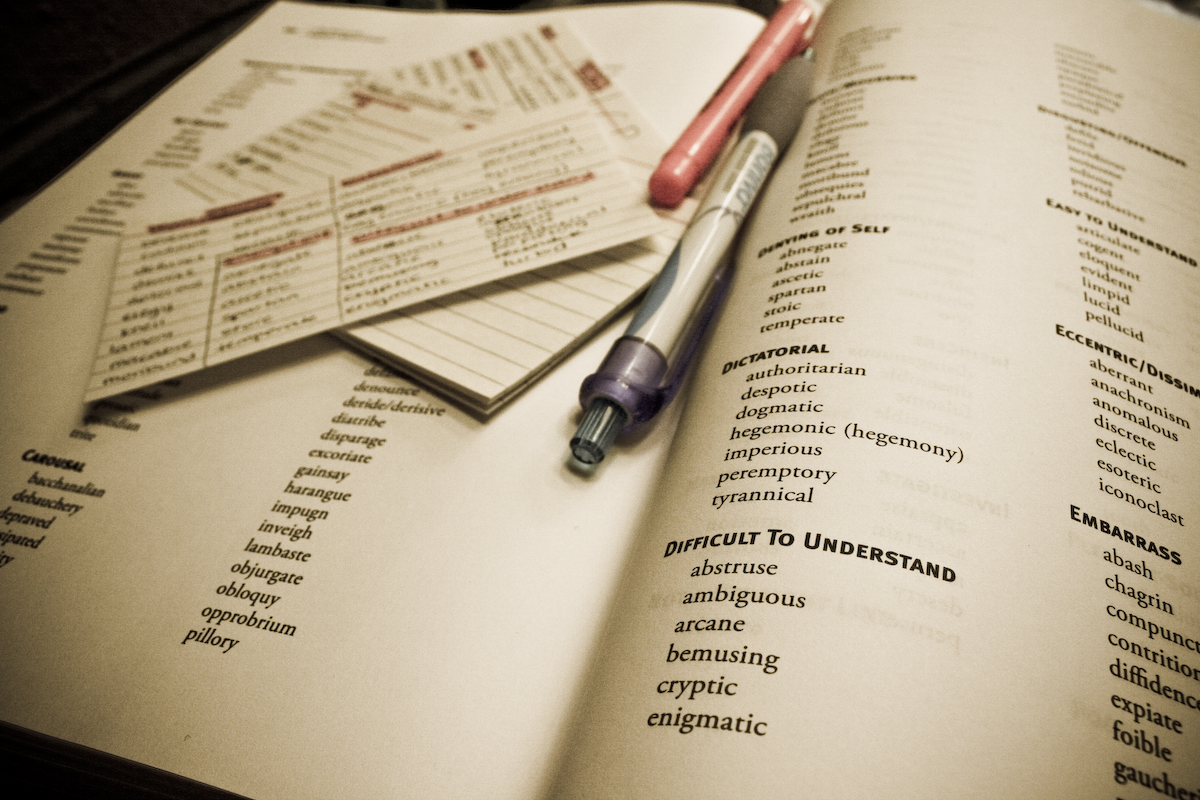5 tips for efficient vocabulary learning
By Julius —
While working on Wokabulary and learning foreign languages ourselves, we have seen that there a just as many learning styles as there are people. Still, we have made the experience that some learning strategies prove to be more efficient than others.
Here are five tips to learn foreign language vocabulary more efficiently with Wokabulary.
1. Learn in small packages
Don't overwhelm yourself with loads of new words. It is tempting to add many new words to Wokabulary to fill it quickly. But entering new words is not the same as learning new words. In fact, having a mountain of new words in your Unknown level will most likely be intimidating and let you lose focus.

We recommend adding new words in small chunks of 10-20 words. Practice these words in the Quiz until you know them a bit better and they have risen to a higher level. Only then add the next chunk of new words.
As a rule of thumb, try to have no more than 20 words in your unknown level.
2. Practice words in increasing intervals
The single most essential principle of any learning is repeated practice. Learning vocabulary is like going to the gym. You need to do it regularly.
For most efficient vocabulary training, practice your words every day for about half an hour. If you find 15 minutes in the morning and 15 minutes after work, that will be enough.
Each foreign word should be repeated in increasing intervals. When the word is new to you, you will need to repeat it more frequently — maybe within a few hours. When you have practiced it several times, it will be sufficient to refresh it after several days. When you do a quiz in Wokabulary, it will automatically selects the words that are ideal to be repeated at that very moment.
3. One card, one word, one meaning
Don't put multiple meanings or translations on a single word card. When you practice your words with the Quiz, it is best to focus on just one word at a time.

Wokabulary can automatically handle synonyms. If a word has multiple meanings or translations, just enter them separately. When you do a typing quiz Wokabulary will automatically recognize either translation as correct.
Learning entire sentences is an effective way to practice words in their context. Just make sure to use the shortest and most simplest sentence appropriate. That makes it much easier to remember the sentences and actually apply them in conversations.
4. Repeat new words until you know them
Do you want to get new words into your brain as quickly as possible? Maybe there are these few words that you just can't get into your brain.

In your next quiz session try this: 1. Use the level filter to select only the new (or hard) words from the Unknown level for the Quiz 2. Do the Quiz. You might only get a few words right. But that's OK 3. When finishing the Quiz use the "Repeat with wrong words" function to only quiz the words that you did not get right 4. Repeat step 1–3 this until there are no words left to quiz 5. Take a break
5. Track your progress and be proud of yourself
Learning a foreign language is hard work. Take a look at your leaning statistics regularly and and be proud of what you have already achieved.
Sometimes your progress might look like not much, but that's totally normal. We have talked to hundreds of foreign language learners during the last years. If you keep up an average pace of around 5 learnt words per day, you are doing perfectly fine. Remember, even if you only learn 3 new words per day, you will know over 1,000 words at the end of a year. Enough to make basic conversation.